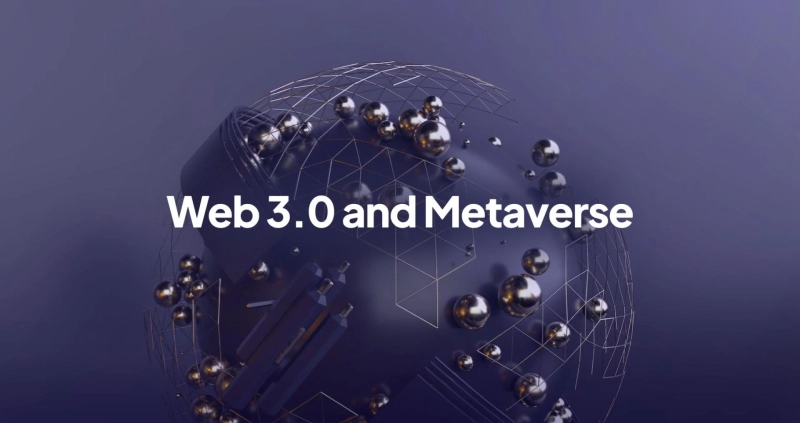The goals of Web3 are to restore the decentralised nature of the early Internet, lessen users' reliance on large-scale technology, give users back control over their data, and make the network more safe, free of hacking, and less prone to frequent service interruptions. It is also the technology that creates lifelike 3D environments and is based on "blockchain development company."
When the Web was born, more than 30 years ago, it was disorganized and decentralized. Although this has changed a lot in recent decades, now a new version of the internet aspires to resurrect decentralized services: Web3. Its promoters assure that this evolution will bring with it a more democratic, decentralized, open and transparent internet.
The next evolution of the internet
Web1 was the read-only web ('read') and was used to host static pages on the internet. Web2, the current paradigm, is read-write ('read-write'), which allows users to interact with services and feed them information. Web3 will be read-write-trust. Alfonso de la Rocha, professor at the European University, engineer and researcher at Protocol Labs, refers to this when he explains that for this reason, many people refer to Web3 as the “Internet of Value”.
Web3 and all the technology developed around it aim to reduce our dependence on large technology companies and their infrastructure, "reducing the entry barriers for small players and allowing end users to become service providers," concludes de la Rocha. This evolution of the internet also seeks to introduce the exchange of value (in the form of currencies or digital assets) as a basic premise, in the same way that the exchange of information exists today.
How Web3 affects the internet as a whole
Web3 has a clear: to return to the essence of the decentralized internet from the beginning, but providing it with more immersive and humanized developments. This is indicated by Héctor Paz Espallargas, a professor at the School of Architecture and Technology of the San Jorge University, who highlights the objective of returning the user to the center and taking control of their own digital identity. "Having the power to decide who gives their data, in what way and to what extent they have privacy," says Paz, who is a professor in the degrees in Video Game Design and Development and Digital Design and Creative Technologies.
Through ‘blockchain’ technology, each digital asset and each movement is registered and protected in the cloud by a long list of blocks that are difficult to alter. Thus, according to the teacher, web pages, hyperlinks, profiles on social networks and sharing our most personal data would be left behind. Because with Web3 everything would be transferred to our personal and anonymous 'wallets', which “will allow us to travel through metaverse keeping our digital identity intact between the different virtual spaces”.
Users can access these types of virtual spaces through the Internet and, once in them, they can interact with avatars, train, entertain themselves or purchase products or services. The metaverse and Web3 complement each other. “The metaverse becomes the great digital universe and Web3 the technology that gives it life and allows you to travel through the different worlds”, emphasizes Paz.
The rise of decentralized finance
The financial system, like the Internet, is yet another platform that can benefit from all the developments carried out around the Web3. With this new version of the internet, it is expected that decentralization will be extended through smart contracts stored on the 'blockchain development company'.
Decentralized Finance (or DeFi, for its acronym in English) is a set of applications based on 'blockchain' networks that, in principle, do not need intermediaries to function. As Carlos Torres Vila, president of BBVA and ambassador of the Code.org initiative in Spain, explains, they allow "anyone at any scale to participate in both using and offering financial services, with no intermediary other than a computer program." Interest in this type of finance has grown in recent years.


